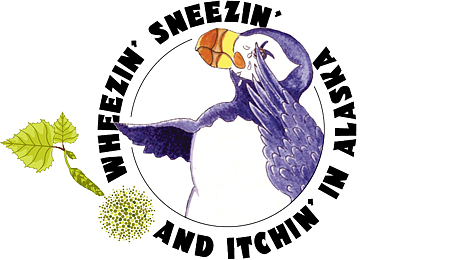2025 Educational Objectives
Objectives as of April 22, 2025.
To date, conference educational objectives are to recognize, discuss and debate the following:
Allergy
- Learn commonly used diagnostic tests in allergy.
- Review allergy diagnostic tools highlighted by clinical scenarios.
- Learn the natural course of allergic rhinitis, common triggers and approach to management.
- Learn which allergic rhinitis therapies and treatments to avoid due to the potential for adverse effects.
- Learn emerging diagnostic modalities in immunoglobulin E (IgE) mediated food allergy diagnosis.
- Understand the role of omalizumab, oral immunotherapy, and intranasal epinephrine in current food allergy management.
- Become familiar with emerging food allergy treatments.
- Learn how environmental exposures like emollients, food intervention and breastfeeding can be used to prevent disease.
Immune System
- Discuss possible reasons for the increasing prevalence of atopic diseases.
- Describe the ways in which atopic disease may be beneficial. Explain how atopic disease may protect from respiratory viral infections.
- Describe autoinflammatory disorders as clinically unique in the spectrum of inborn immunity errors.
- Recognize the shared and unique clinical presentations of autoinflammatory disorders.
- Learn the initial clinical workup for suspected autoinflammatory disorders, and describe treatment options.
- Outline the components of the immune system. Understand how immune system components work together to prevent infection and repair tissue damage.
Asthma and Respiratory Disease
- Outline optimal intervention strategies for preschool children with mild persistent asthma and severe episodic wheezing.
- Develop strategies for phenotype directed therapy in preschool children.
- Describe the pathophysiology and clinical presentations typically seen in patients with long COVID.
- Discuss useful approaches to diagnose and treat patients with long COVID.
- Review the efficacy of existing and emerging asthma therapeutics.
Skin Deep
- Describe the pathophysiological basis for patients presenting with various forms of angioedema.
- Discuss approaches to efficient diagnosis and effective therapy in managing patients presenting with angioedema.
- Understand the efficacy of systemic agents for atopic dermatitis.
- Understand the efficacy of topical agents for atopic dermatitis.
- Learn about new treatments for atopic dermatitis, including mechanism of action and potential side effects of the agents.
- Distinguish between Type 1 and Type 2b Chronic Spontaneous Urticaria.
- Learn how management differs between autoallergic and autoimmune types of Chronic Sponstaneous Urticaria.
Social and Environmental
- Discover what’s new at the American College of Allergy Asthma and Immunology (ACAAI).
- Recognize and describe the pros and cons of artificial intelligence (AI) in various aspects of medicine.
- Understand the future of AI in medicine. Understand effect of rising pollen on allergies and asthma.
- Learn mitigation strategies that can better protect public health.
- Recognize the impact of climate change on increased prevalence and severity of atopic dermatitis
- Understand the role of climate change in the increased prevalence of food allergy.
- Learn the global impact of climate change on nutrition.
- Discuss cases demonstrating health disparities.
- Understand the framework of health disparities.
- Describe the office strategies to promote health equity.
- Learn about ways to maintaining the three pillars of health – physical, mental and social health - in a changing environment.
